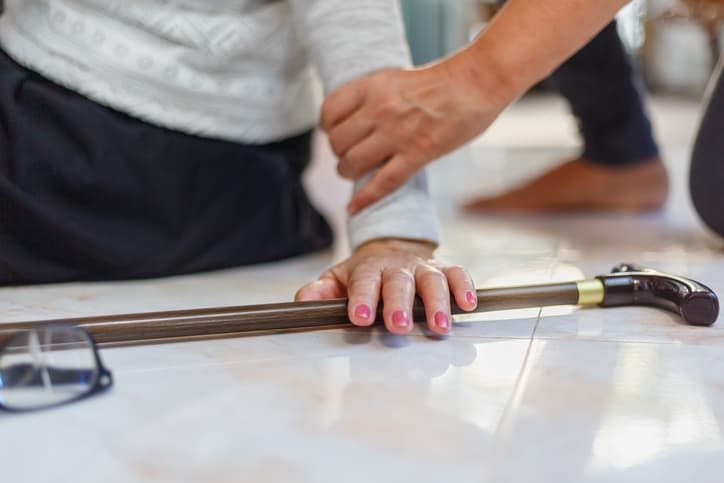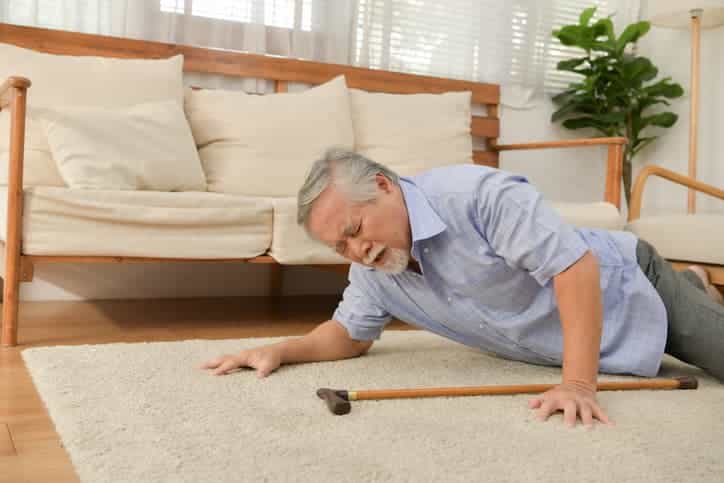Dealing with aging can be difficult. It can be more difficult when you (or a loved one) are becoming increasingly unsteady. According to the National Institute on Aging (NIH), challenges with balance can become more common as medical issues such as diabetes, heart disease, and thyroid problems cause damage to the nerves and blood vessels in elderly patients.
When it comes to issues involving a lack of proper balance, the biggest fear is the risk of falling. Contrary to popular belief, according to the Centers for Disease Control and Prevention (CDC), falls are not a standard part of the aging process. Yet, in the United States alone, 36 million adults over 65 experience a fall annually. Over 32,000 of these falls end the patient’s life due to complications from the fall, according to the CDC.
Likely, the best way to prevent falls in the elderly is to avoid the balance issues that can cause such falls. Keep reading to learn more.
What are the symptoms that someone is losing their balance?

Since we may brush off a minor symptom that could potentially lead to a fall, it’s essential to know the warning signs of imbalance issues that can lead to fall risk. According to the National Institute on Aging (NIH), you should look for signs such as:
- Feeling lightheaded or as if the room is spinning.
- Blurred vision.
- Feeling as if you’re floating.
- Confusion.
- Feeling faint.
If you’re experiencing one or more of these symptoms, it’s vital that you see a doctor and find the root cause in order to prevent a fall.
What causes dizziness and loss of balance in elderly people?
Experiencing imbalance and/or dizziness can result from a simple weakening of the muscles in the legs, a minor medical issue, or a serious medical condition. Therefore, it’s imperative to consult with your doctor about what may be causing you to feel unsteady.
Common causes of a loss of balance in the elderly can include:
An inner ear problem
According to the NIH, if something goes wrong in the vestibular system (the system that controls our sense of balance) of the inner ear, we can experience vertigo. This condition is sometimes referred to as labyrinthitis, and it’s most often caused by an infection or swelling in the vestibular system. Labyrinthitis can also result from a respiratory or viral infection.
Something is off with your blood pressure or the medications you take.
According to the Cleveland Clinic, one cause of dizziness can be your blood pressure. If it is too low or too high, it can cause a lack of balance. A loss of balance and/or dizziness can also be a side effect of certain medications or mixing certain medications. Talk to your doctor if either of these is a possible cause of your symptoms.
Neurological causes
Balance issues with or without accompanying dizziness can also be a side effect of injury to the brain. According to the Cleveland Clinic, a head or neck injury could cause this type of balance problem. There are also multiple neurological conditions that could cause balance issues and dizziness, such as Alzheimer’s Disease, Parkinson’s Disease, or even Multiple Sclerosis (MS).
Poor eyesight
The decrease in visual ability that corresponds with age seems to have an effect on fall risk as well. A 2018 study published by the National Institute of Medicine found such a link, with results showing that central vision impairment corresponded with an elevated risk of falls by 2.4-fold, and peripheral vision impairment was linked with increased fall risk by 1.4-fold.
Vestibular neuritis
According to the National Library of Medicine, vestibular neuritis (also called vestibular neuronitis) causes vertigo, nausea, and balance issues. Vestibular neuritis is thought to occur when there is inflammation in the vestibular portion of the eighth cranial nerve (perhaps triggered by a previous or present viral infection). Unfortunately, inflammation cannot be seen with an MRI scan, so diagnosis can be difficult. Diagnosis is usually obtained by eliminating other causes of vertigo.
What can be done to treat balance issues?

The treatment for loss of balance in elderly patients will depend significantly on the root cause. The best thing you can do is see your doctor and find out what is causing the problem. Some things that may prevent and/or treat a loss of balance in the elderly include:
- Exercises that strengthen the legs and improve balance. The CDC suggests Tai Chi.
- Get your vision checked once a year.
- Thoroughly review with your doctor any medications (even over-the-counter ones) and supplements you take.
- Get your blood pressure checked regularly.
- Eat a balanced, healthy diet to keep blood sugar and blood pressure in check.
For those already struggling with balance issues, here are some things you can do, in addition to the above tips, to prevent falls:
- Ask your doctor about positioning procedures to help move fluids in the inner ear to alleviate symptoms (per the Mayo Clinic).
- Make your home mobility-friendly by cleaning up clutter, installing a shower bar, installing handrails, etc.
- Wear appropriate shoes.
- Consider walking aids such as a cane or walker.
While dizziness and loss of balance in elderly patients are common, it is often treatable and preventable. Talk to your medical team about how to avoid developing balance issues and/or how to get your sense of balance back if you are already suffering from this problem.
Citations:
Balance Problems. (2018).
Balance Problems and Disorders. (2017).
Keep On Your Feet — Preventing Older Adult Falls, CDC. (2020).
Prevent Falls and Fractures. (2017).
Saftari, LN. (2018). Ageing vision and fall: a review.
Smith, T. (2022). Vestibular Neuronitis.